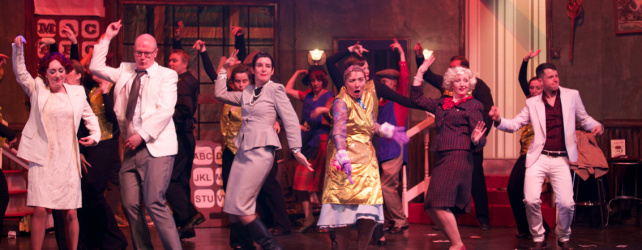You wake and look at the clock. 7.14am. It’s a Saturday, you don’t need to get up. You lie there thinking through the day and realise that you might not speak to another person all day. What to do? You could go window shopping and treat yourself to a coffee, at least that way you’ll be around people and have the opportunity for a quick conversation or two. Or you could watch TV. It’s not like anyone would want to talk to you, so you’d only be disappointed when you go out and no one speaks to you. Yes, much better to stay in.
Welcome to loneliness, the new national, if not worldwide, epidemic. We all suffer from loneliness from time to time, but for increasing numbers in our communities, it’s becoming a crushing daily reality. Thousands of people all over the country are suffering from lack of friendship or lack of contact with others.
The Campaign to End Loneliness describes loneliness as a ‘subjective, unwelcome feeling of lack or loss of companionship’. They go on to say that ‘loneliness can be a transient feeling that comes and goes. It can be situational; for example only occurring at certain times like Sundays, bank holidays or Christmas. Or loneliness can be chronic; this means someone feels lonely all or most of the time.’
According to figures collated by the Campaign to End Loneliness, loneliness and social isolation is a real threat to health, having the same impact on mortality as smoking 15 cigarettes a day. People who suffer from severe loneliness are at greater risk from high blood pressure, dementia and depression.
It’s widely recognised that older people are at risk of feeling lonely, due to bereavement or a lack of outside contact. Figures from the Office for National Statistics show that over half of all people aged 75 and over live alone while, according to Age UK, for two fifths of the older generation (almost 4 million people), the television is their main company. However, loneliness doesn’t just affect the elderly. People of all ages and from all backgrounds are feeling the effects of social isolation.
In her TV documentary, The Age of Loneliness (Wellpark Productions for the BBC), Sue Bourne interviewed people from different social backgrounds, different generations and different experiences about their feelings of loneliness. She found that loneliness can affect anyone: students, parents, those recently bereaved or divorced, those who don’t have a partner, as well as the elderly. One of her interviewees, an 84-year-old woman called Dorothy, put her finger on loneliness: ‘You can’t see it, you can’t smell it, you can’t touch it. You can only feel it when you’ve got it.’
Loneliness is a part of older life. We recognise that, even if we don’t think it’s a positive thing. However, loneliness is not ‘socially acceptable’ in other generations. Lou is in her 30s and works as a schools’ worker in Kent. She calls this the ‘but’ of loneliness. ‘I am not allowed to be lonely,’ she says. ‘People often seem surprised: “But you have friends”, “But you are really sociable”, “But you have a new house to play with”. I can’t answer them, because I tell myself this too. I feel guilty for my loneliness, and ashamed. However, I am learning to allow the loneliness to be a true feeling and in accepting it I am beginning to grow.’
Parents are not immune to feeling lonely, which seems strange, as they are often surrounded by people. And yet, thanks to the pattern of work, childcare, or even separation or divorce, family life throws up isolation as well as community.
Em had different experiences with her two children: ‘With my first baby, I made a group of friends. Some days were lonely but we shared the preschool years and spent lots of time together. A few years later, when my son arrived, those friends were back in work, my first child was in school and we’d moved across the city, so it was like starting again with a very different child. He would want me to be with him and not concentrate on anyone else which meant that even when we were surrounded by people – and perhaps even because of that – I felt incredibly lonely.
‘I was often told to “make the most of it; it goes so quick”, which I knew was true but it didn’t stop the day-to-day being really hard or change the fact that I felt so isolated. I’m grateful I was able to take time out of work to be at home but it was an extremely lonely time – there were days when I was pretty desperate for company, for someone who could really just “do life” alongside us.’
Toddler groups, such as those run by thousands of churches across the country, can be a lifeline to parents of young children. Tessa Rust is Early Years Mission Adviser for the Diocese of London. She spends a lot of time visiting toddler groups. She says: ‘Some parents come to groups after the birth of their children, many realising that they don’t know anyone in the local area. They feel lonely. Toddler groups provide a feeling of family, when biological families are too far away.’
Other factors can be the cause of loneliness. Any kind of additional need can result in barriers that are hard to overcome. Daniel is in his 20s and works on the railways. He has Apserger’s Syndrome, which means that he finds friendships harder to initiate and maintain. He is aware that, when meeting new people, he sometimes doesn’t get things right. In addition, he finds that a lack of understanding on other people’s part can put another obstacle in the way of building relationships. This isn’t insurmountable, but it adds another layer to a potentially tricky situation.
‘I have to be careful,’ says Daniel, ‘not to put too many expectations on friendships when they start. Because I find making friendships difficult, I am learning to manage my emotions to that I don’t get anxious.’
For some, it’s ‘situational’ loneliness that is the issue. This comes about when the pattern of your life results in a time when no one is around, when you’ve nothing to do or when events conspire to force you to be on your own. Di has recently lost her husband, having helped him face a battle against cancer. Now, although she lives a varied life, Sunday afternoons are a lonely time for her. Sunday morning is spent working for her local church in the Sunday School but, while her fellow church-goers go home to a Sunday lunch or an afternoon with the family, Di returns to an empty house.
‘I feel my loneliness is somewhat tempered with frustration because the easier option is to go home and close the door,’ says Di. ‘This is because when my husband was alive Sunday afternoons were spent together walking in the park or going for a coffee. Now, it is an effort on my part to arrange something else.’
Xan too suffers from situational loneliness. He works from home, but balances that with an active social life. ‘Sometimes, it just so happens that all your friends are busy when you’re not, and you’re left with nothing to do but watch TV or read a book. This is fine once in a while, but if it happens regularly in a short space of time, then you start to feel left out or like you don’t have many friends.’ He also recognises how, in today’s hectic, mobile culture, it’s easy to lose contact – close friends turn gradually into mere acquaintances. ‘There are quite a few people I have lost contact with whom I would have counted as good friends, and that’s sad. And if you’re lonely, it can be weirdly difficult to pick up the phone to chat to these former friends – you think they’ll be too busy or they’ll think it too strange to be called out of the blue.’
In situations of loneliness, social media can be both a blessing and a curse. Yes, you can reach out to people through Facebook, Twitter or whichever platform you prefer, but that also brings you into contact with people’s timelines – photos and comments that they have posted about their life – and that can exacerbate feelings of loneliness, rather than make them better. When your Facebook feed is stuffed full of photos of other people enjoying themselves with family or friends, this can be a dispiriting thing. You’re brain starts whirring: ‘Why am I not laughing and joking like these people?’ ‘Why are my friends out having fun without me? Don’t they like me any more?’
In the documentary The Age of Loneliness, several of the interviewees, particularly those under 40, identified the pressure of social media as something that only made their loneliness worse. Xan agrees: ‘It’s easy to forget that what people post on social media is actually a carefully curated version of their life. People want to present the best side of themselves – the most sociable, the craziest, the liveliest side – we all do it. They don’t publicise the times when they’re binge-watching a box set in their pyjamas, eating nothing but chocolate digestives. We only see the highlights, but that can lead us to think that our lives are somehow “less” than others’.’
Loneliness is a hidden affliction, often seen as shameful by those who suffer from it. We need to have our eyes and our ears open to those who need a comforting word, a place to belong, an offer of a cup of coffee, a chat or just someone to ‘be’ with. Showing a little understanding and kindness (but not pity) can make everyone’s lives more connected, valued and fulfilling. Just one phone call or invitation can break the cycle of loneliness and open up a path to a better, more connected life.
This article was originally published in Families First, the magazine of the Mothers’ Union.
Photo by Marina Shatskih from Pexels.





